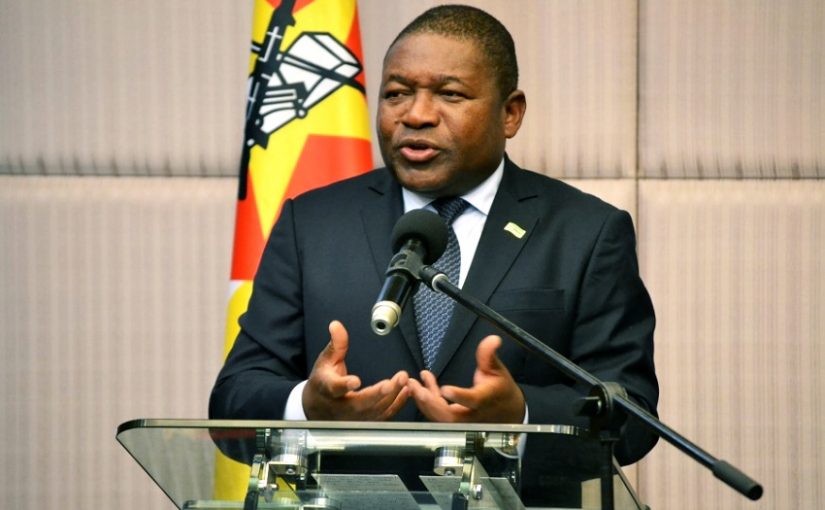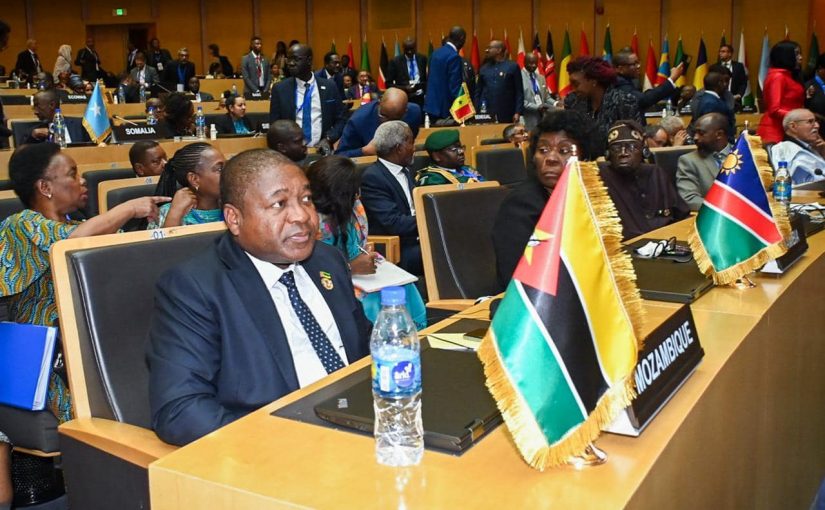President Filipe Nyusi’s Address on World Desertification Day. View it here.
Motto: Our Legacy, Our Future
On June 17th, we commemorate the World Day to Combat Desertification, a date that also marks the 30th anniversary of the United Nations Convention to Combat Desertification (UNCCD). This Convention, along with those on climate change and biodiversity, forms the trio of the Rio Conventions. Today, I urge the populations and governments of African Union member states to commit to environmental conservation and ecological restoration programs for degraded areas.

Desertification and drought are global challenges affecting millions of people, compromising their security, food supply, water availability, and biodiversity—issues that are particularly acute in Africa. Studies from the World Meteorological Organization show that 2023 was the hottest year since the pre-industrial period (1850-1900). In Africa, the average temperature increase was 1.45 degrees Celsius, which should be a cause of concern for all of us.
In 2023, intense heat waves led to forest fires, resulting in the deaths of 34 people and the evacuation of 1500 in Algeria. These events highlight the urgent need for proactive measures to address climate change for the sake of future generations.
I want to acknowledge and thank all those involved in projects combating desertification, particularly the inspiring Great Green Wall initiative in Sub-Saharan Africa. This initiative aims to create an 8,000-kilometer-long and 15-kilometer-wide green belt across more than 20 countries of the Sahara Desert, from Dakar to Djibouti. By restoring biodiversity, this initiative helps us tackle the climate crisis and achieve sustainable development goals. The Great Green Wall is projected to create 10 million jobs by 2030, contributing significantly to climate resilience and economic growth.
In alignment with the UN’s “Early Warning for All” initiative and the Maputo Declaration on Early Warning and Early Action, Mozambique implemented, for the first time, actions in 2023-2024 to prevent and mitigate the effects of drought associated with El Niño. Similar drought resilience efforts have been tested in Madagascar, Niger, Ethiopia, Somalia, Lesotho, and Zimbabwe. Our collective goal for Africa is to build a resilient and sustainable future by reducing disaster risk and promoting climate resilience through innovative approaches.
On this World Day to Combat Desertification, let us renew our commitment to an inclusive, sustainable, and resilient future for generations to come.
Context on UNCCD COP 16 and Recommendations by CSOs and Governments
The 16th Conference of the Parties (COP 16) to the UNCCD is a crucial event where stakeholders from across the globe come together to discuss and formulate strategies to combat desertification. Civil society organizations (CSOs) and governments play a significant role in these discussions, often bringing diverse perspectives and solutions to the table. Key recommendations from CSOs and governments at COP 16 include:
- Strengthening Local and Indigenous Practices: Emphasizing the importance of traditional knowledge and practices in combating desertification, and integrating these with modern scientific approaches.
- Enhancing Funding Mechanisms: Increasing financial support for projects aimed at land restoration, sustainable land management, and capacity-building at local levels.
- Promoting Community-Led Initiatives: Encouraging grassroots movements and local community involvement in planning and implementing restoration projects to ensure sustainability and inclusiveness.
- Boosting Collaboration and Partnerships: Fostering partnerships between governments, the private sector, CSOs, and international organizations to leverage resources and expertise.
- Innovative Technology and Data Utilization: Utilizing advanced technologies and data analytics to monitor, assess, and manage land degradation effectively.
- Policy Integration and Coherence: Ensuring that policies across sectors such as agriculture, water management, and climate change are integrated and coherent to maximize the impact of land restoration efforts.
About the Great Green Wall Initiative:
The GGWI is an ambitious project spearheaded by the African Union, aiming to restore 100 million hectares of degraded land across the Sahel region by 2030. Coordinated by Dr. Elvis Tangem, the initiative seeks to combat desertification, improve food security, and promote sustainable livelihoods for millions of people across Africa.







Leave a Reply